Natural Diamonds from Sierra Leone Have a Good Story to Tell
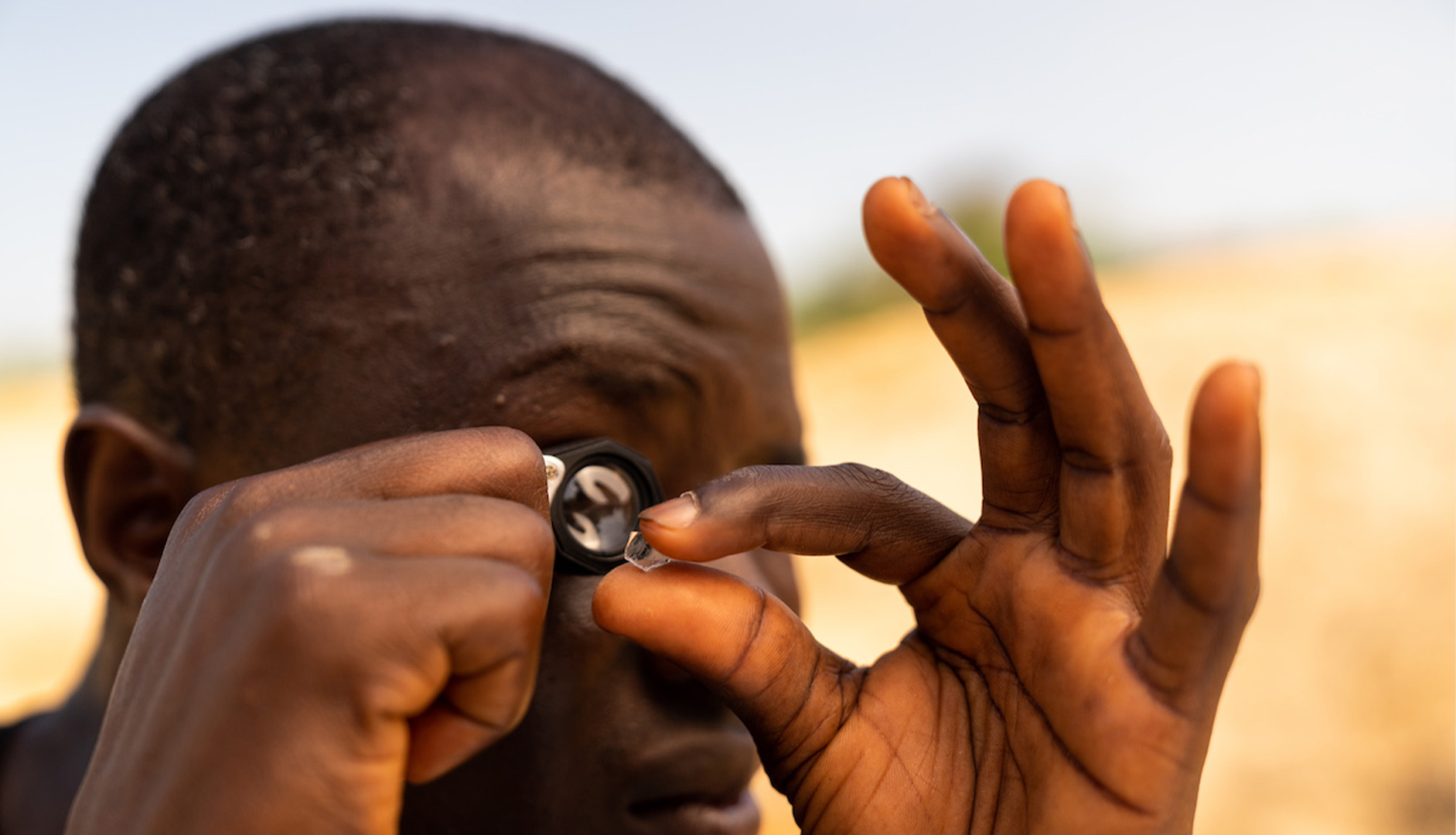
Sierra Leone’s Kono district is an area rich in diamond resources, but it’s had a poor record on human rights and environmental standards. Now, an inclusive new program offers the region’s artisanal and small-scale miners a safer, environmentally responsible and profitable path forward. And nearly 300 mining operations have already signed on!
Established by De Beers in 2018, the GemFair program requires artisanal and small-scale diamond miners (ASM) commit to a long list of environmental, human rights and ethical working standards. In return, GemFair supplies miners with much-needed safety training, financial and technical support to make their mines more efficient and safer for workers and the environment.
The newly mined Sierra Leone diamonds are tracked from the mine to the buying office using GemFair’s bespoke digital solution. Here they are uploaded on the Tracr™ platform, a program that uses blockchain, artificial intelligence and advanced security technologies to digitally track a diamond’s journey.
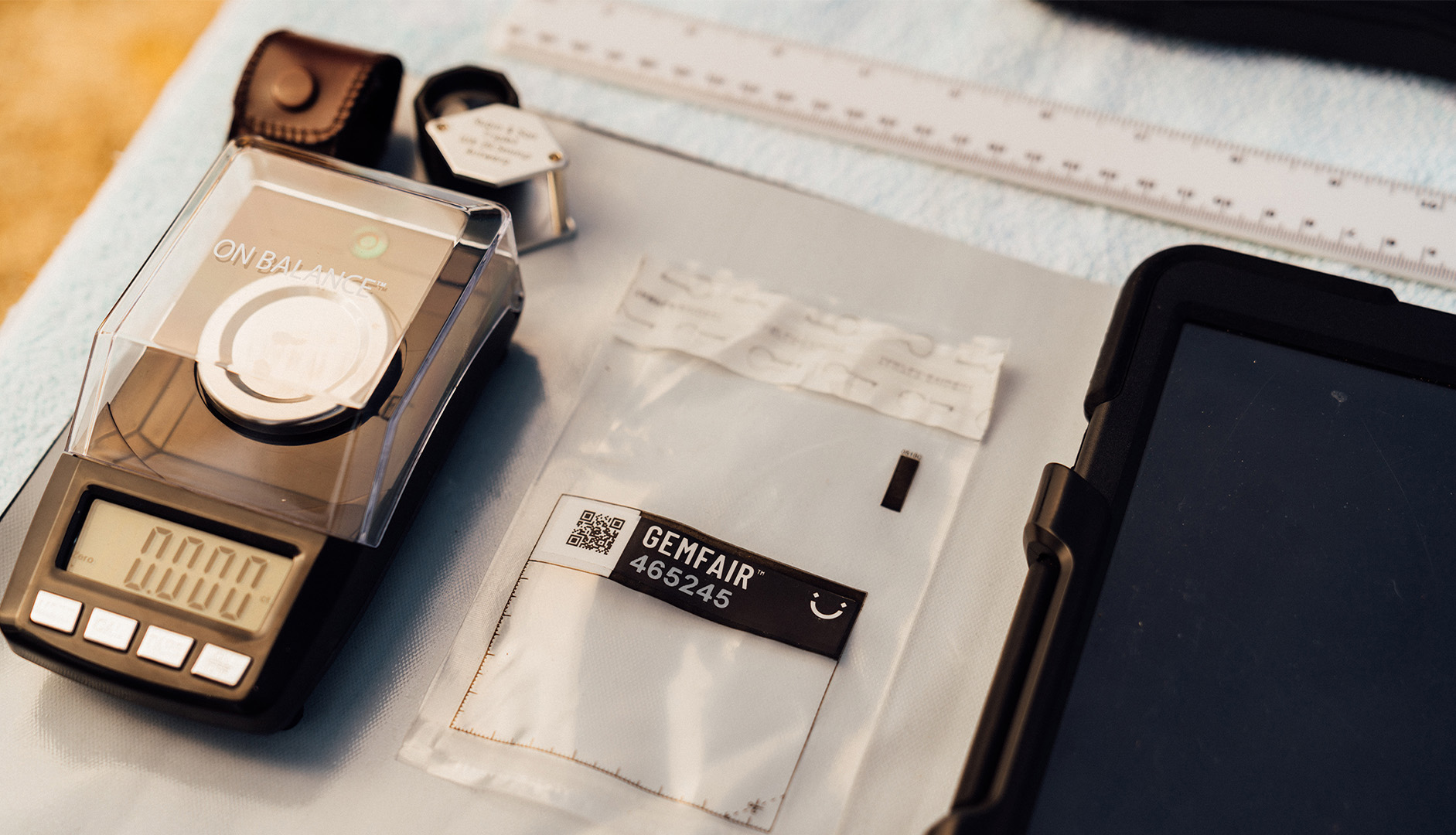
GemFair’s traceability solution provides international buyers access and information about responsibly mined ASM diamonds by linking the stones they buy to the positive impact on the ground.
The system also ensures that GemFair participants get fair market value for their diamonds. Miners can bring their diamonds to the De Beers office in Sierra Leone and get market value based on the De Beers price book for rough diamonds. De Beers offers the traceable diamonds through auctions to the international trade.
Now diamond buyers are assured that the diamonds are responsibly sourced and can feel good about supporting the Kono region’s mining industry.
It’s a huge leap forward for the artisanal and small-scale mining sector, which has been plagued with a lack of funding and poor working conditions. In areas like the Kono district, most people depend on artisanal and small-scale diamond mining and agriculture to feed their families.
GemFair provides the mining operations with the financing they need to help them develop better businesses and improve their production and livelihoods. It also provides financial support to small farms.
At least 40 million people depend on artisanal mining globally for their livelihood, according to industry statistics. If you add their dependents, that number is 150 million people.
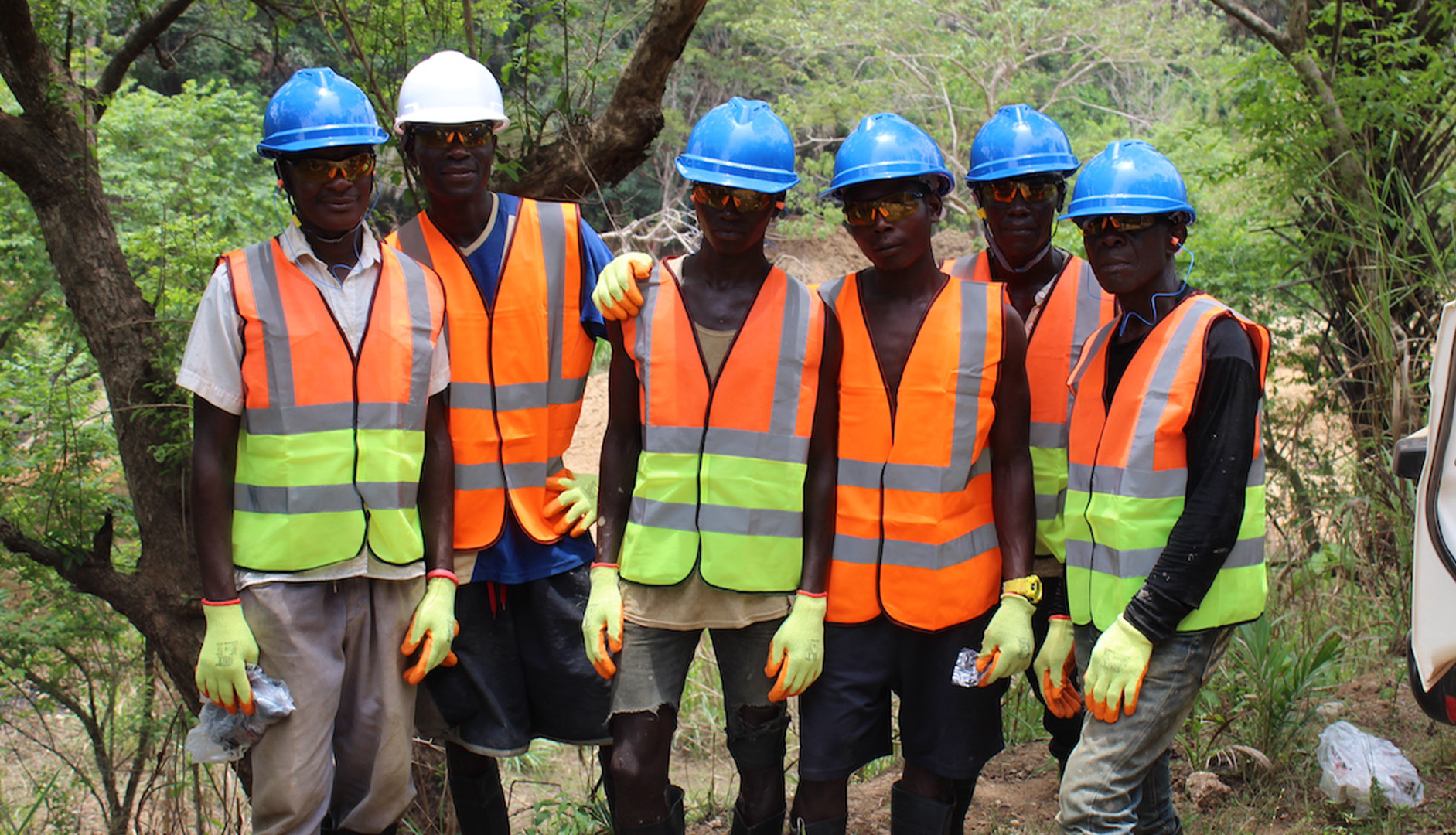
One executive who knows Kono’s miners firsthand is Kyle Simon, co-founder and CEO of The Clear Cut, a New York-based diamond jewelry retailer. During Simon’s three years living in Sierra Leone, he started a fairtrade diamond company in Kono but was forced to exit the country when the Ebola epidemic broke out in 2014. “Kono’s miners have a willingness to do things the right way and be part of the global mining industry,” he said. “It’s a peaceful and welcoming place, and they have been wanting more investment and attention for quite some time.”
The challenge in Sierra Leone, Simon explained, is that there are so many artisanal miners that it’s hard to coordinate a wide variety of players. Still, he believes De Beers’ successful track record in partnering with the Botswana government and people is proof that it can be done. “This is just what’s needed to turn the mining industry around in Sierra Leone.”
Nearly one third Kono district’s 600 artisanal and small-scale miners license holders have joined GemFair’s program.
De Beers established GemFair in the Kono district with 14 sites in 2018, and it’s taken off. Today, GemFair has about 280 mine sites and plans to enlist 40 to 50 sites per year, according to Dr. Ruby Stocklin-Weinberg, GemFair’s Program Manager.
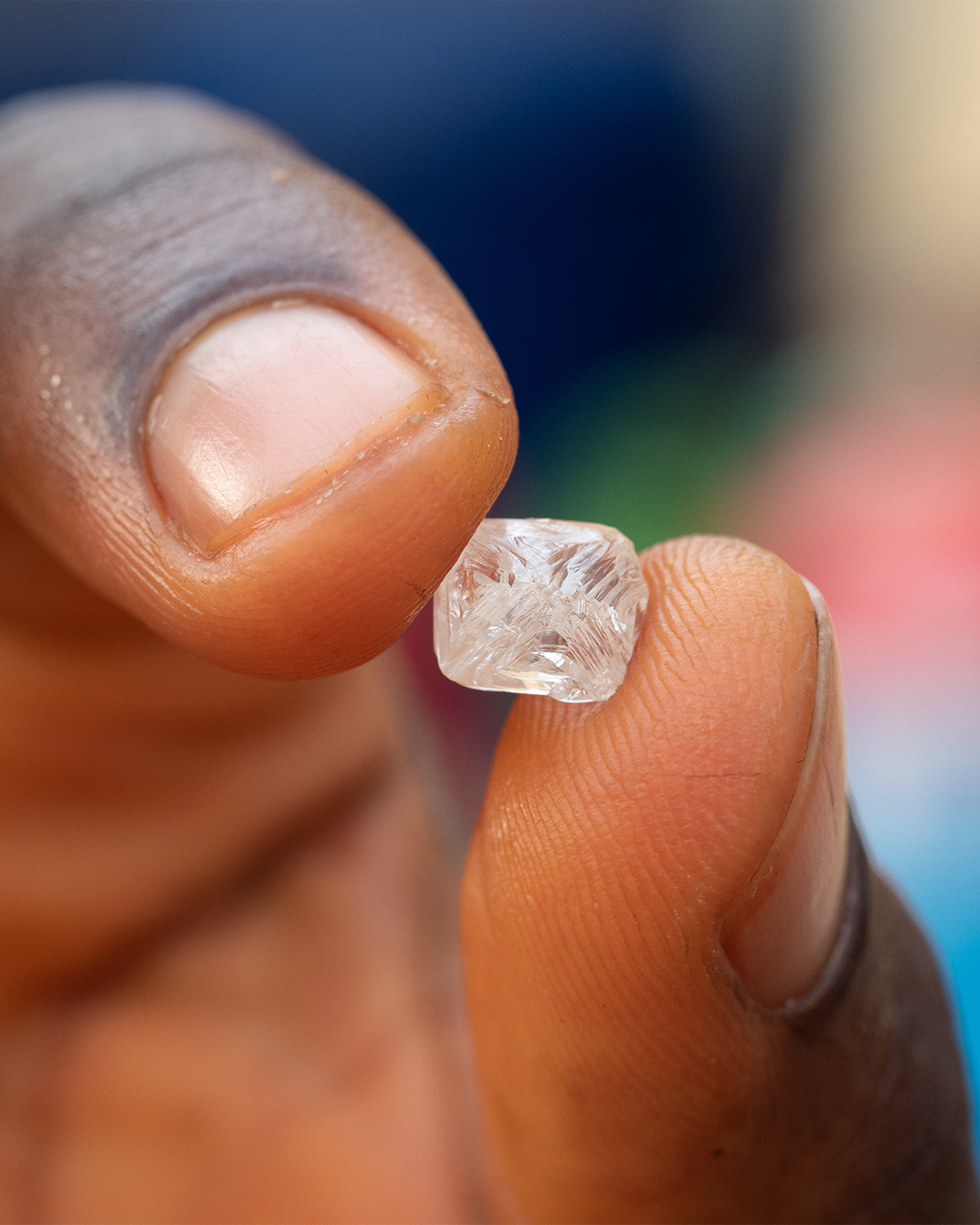
“There remains a negative stigma around artisanal and small-scale mining, which ultimately effects the perception of the whole industry,” said Stocklin-Weinberg. ASM supplies between 10 to 20 percent of the world’s gem quality diamond supply. When the entire industry standards are elevated, she said, consumers have more confidence when buying diamonds.
For the last several years, big companies like De Beers stayed away from Sierra Leone’s ASM mining industry but GemFair signals a new beginning. “We knew if we were going to get back into sourcing artisanal diamonds, we had to do it in the most responsible way that would also include the most vulnerable groups in the country,” explained Adam Rolfe, GemFair’s Business Development Manager.
As the industry moves towards traceability on all levels, it makes the trackable Kono sourced diamonds even more desirable. At GemFair’s first segregated sale through De Beers Auctions in October of 2021, it offered varying qualities and sizes, with the largest weighing 11 carats, and all gem quality lots were sold.
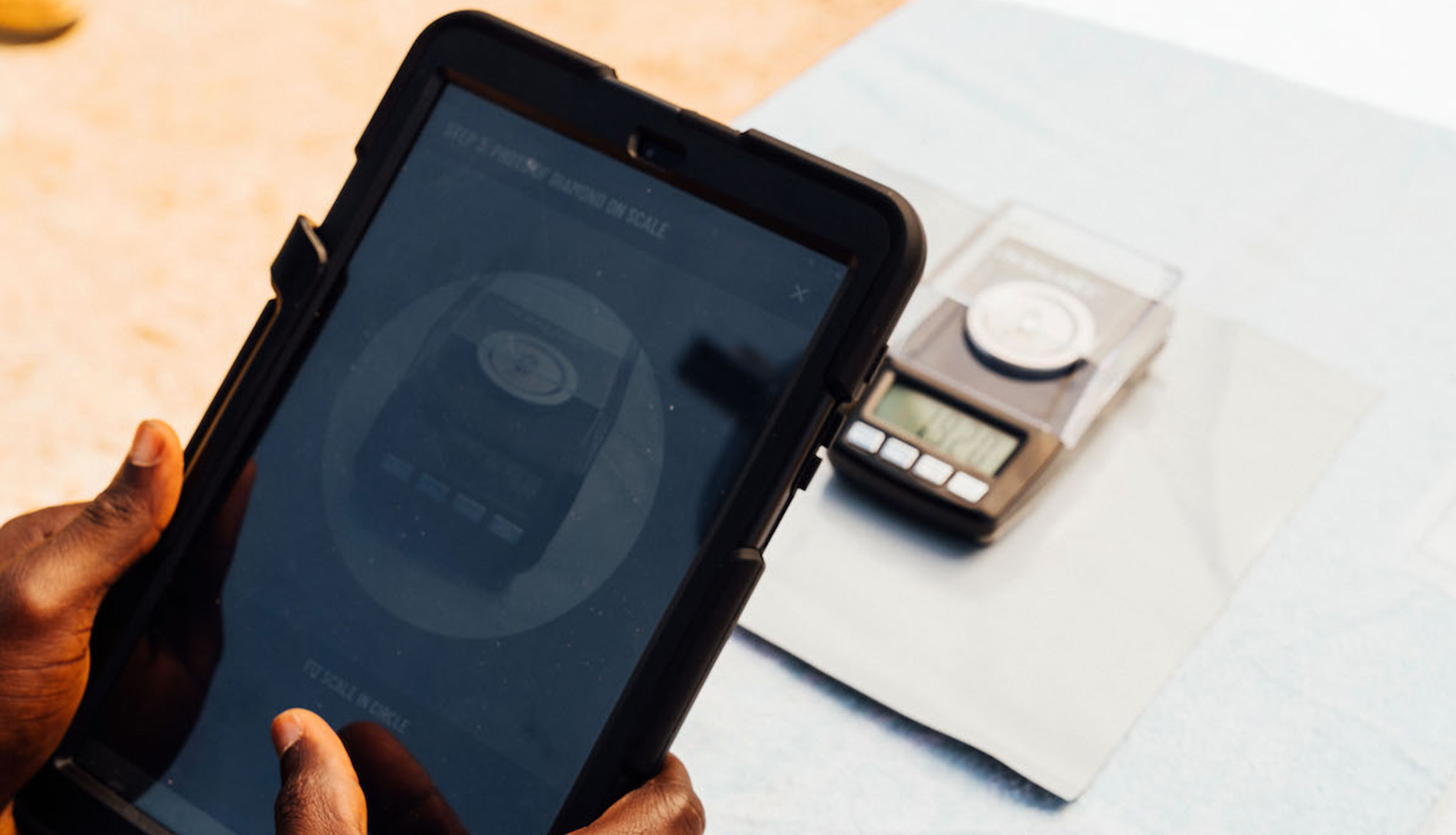
This is a plan for the future of artisanal and small-scale diamond mining.
GemFair’s model is proof that artisanal and small-scale mining operations can be responsible, safe and ethical businesses. But it takes time, said Rolfe. “The impact is generated when we work closely with miners to take them to another place, and that takes time and trust. It’s not perfect yet, but we are going to engage and include artisanal miners in our supply chain and take them on that journey.”
De Beers has also made all the information and guidelines available on the GemFair website in hopes that other industry leaders and governments will implement variations of the program in more regions.
One of the major obstacles for artisanal and small-scale miners is lack of funding. Because these businesses are partially informal and partially licensed, it’s been difficult to attract investors. The lack of funding leaves miners open to exploitive practices, such as selling stones for below market value because they don’t have access to global markets. As Rolfe said, “This is about inclusion of the most vulnerable populations.”
The impact is far wider than just the miners. When the diamond mines are safer and more productive, it spreads across the country’s economy. There are more jobs, more investment and more commerce, which is a win-win for everyone.
